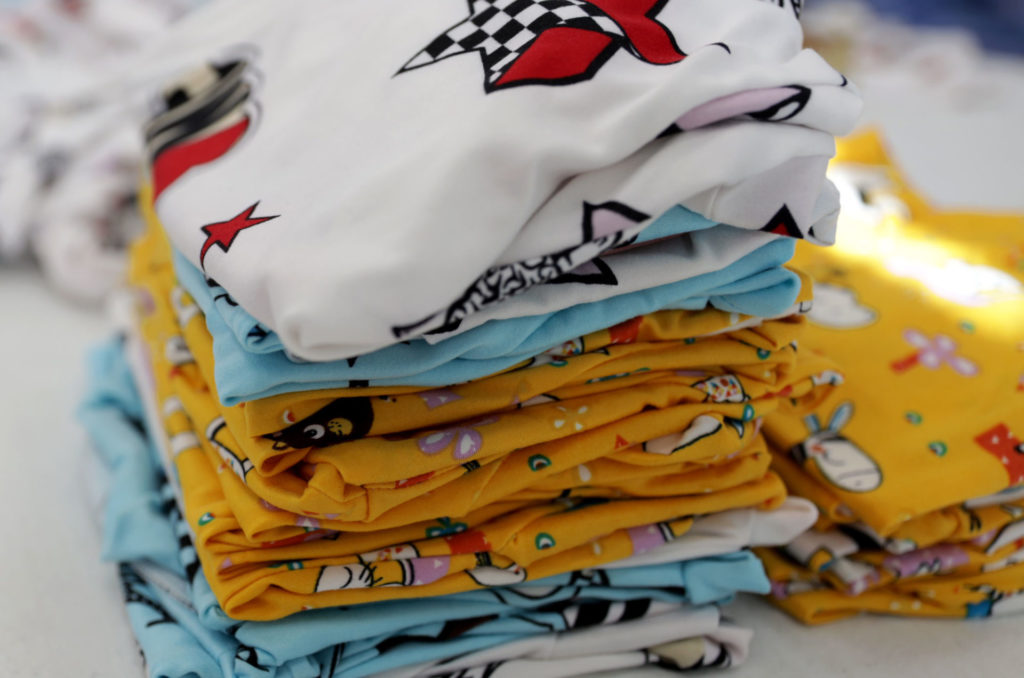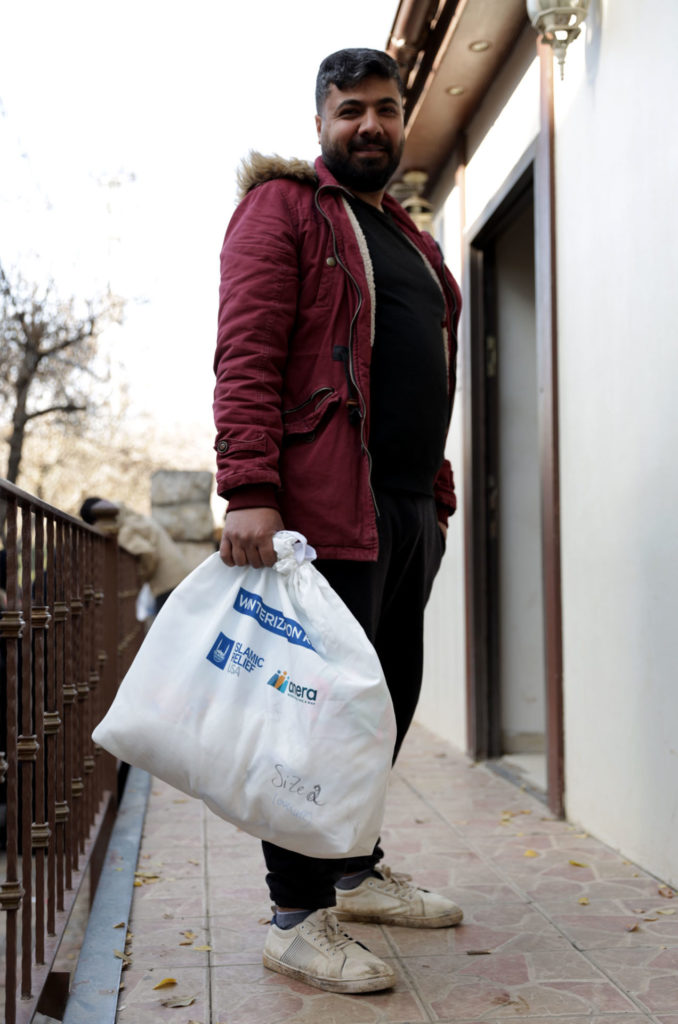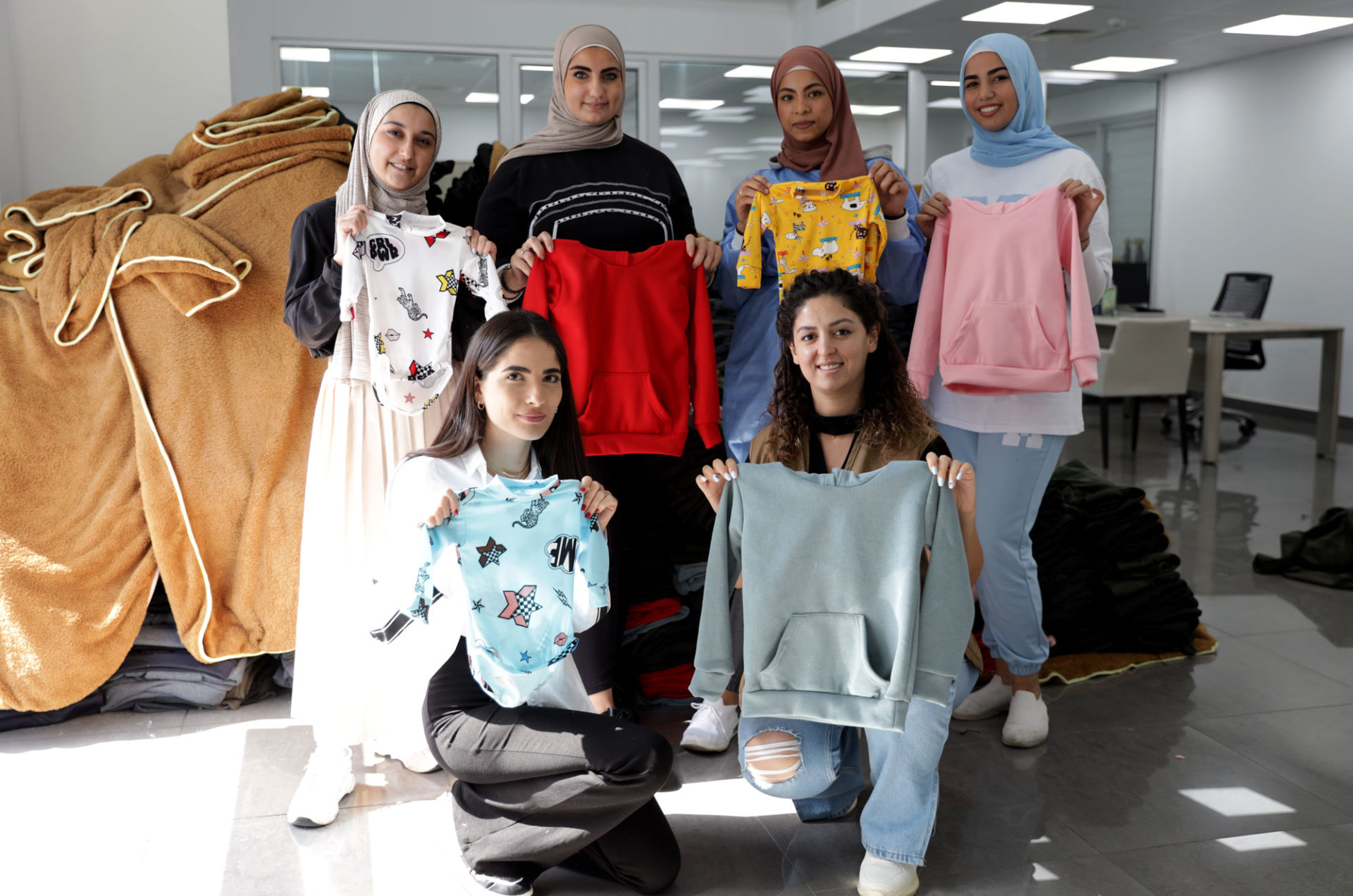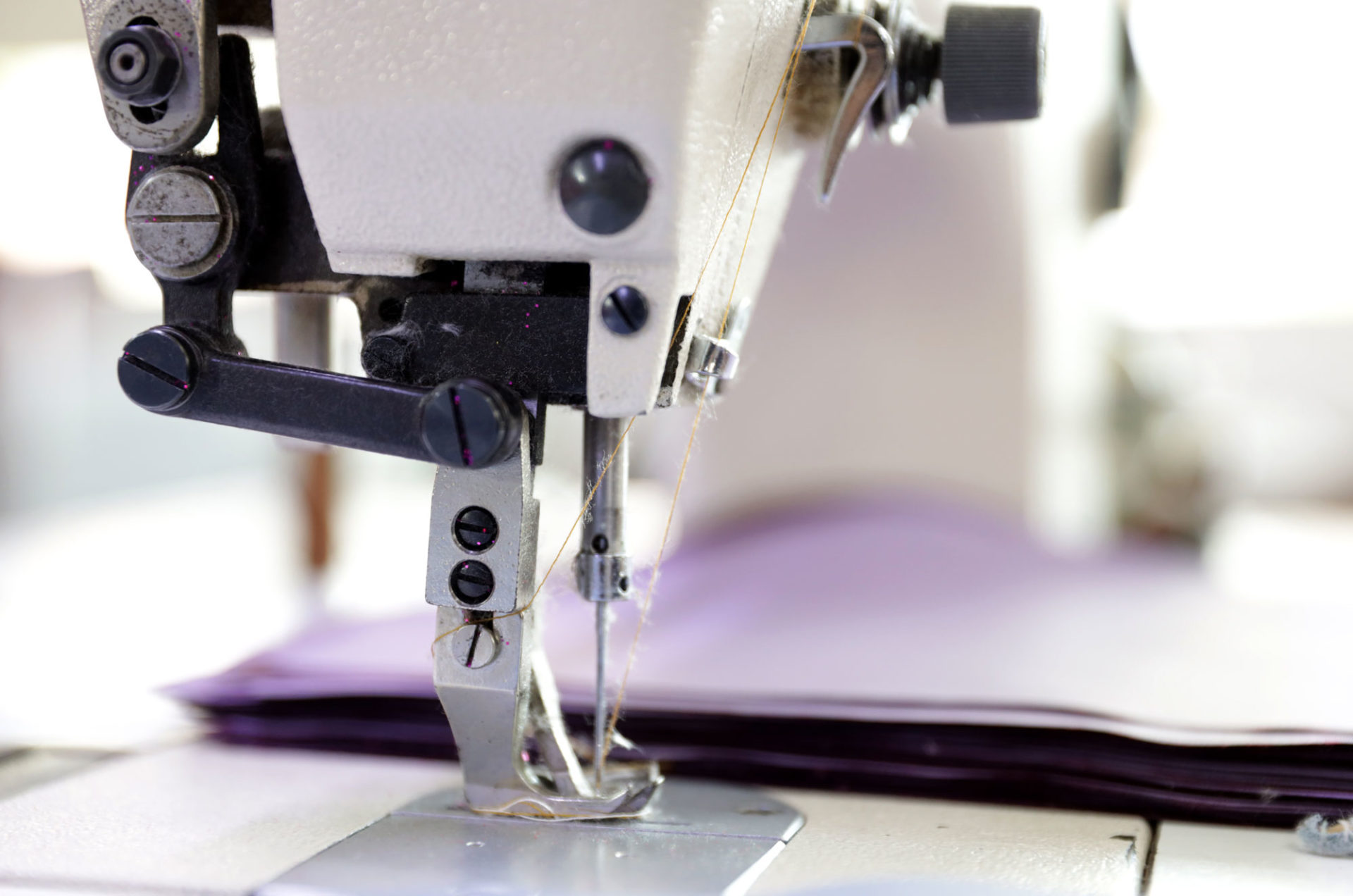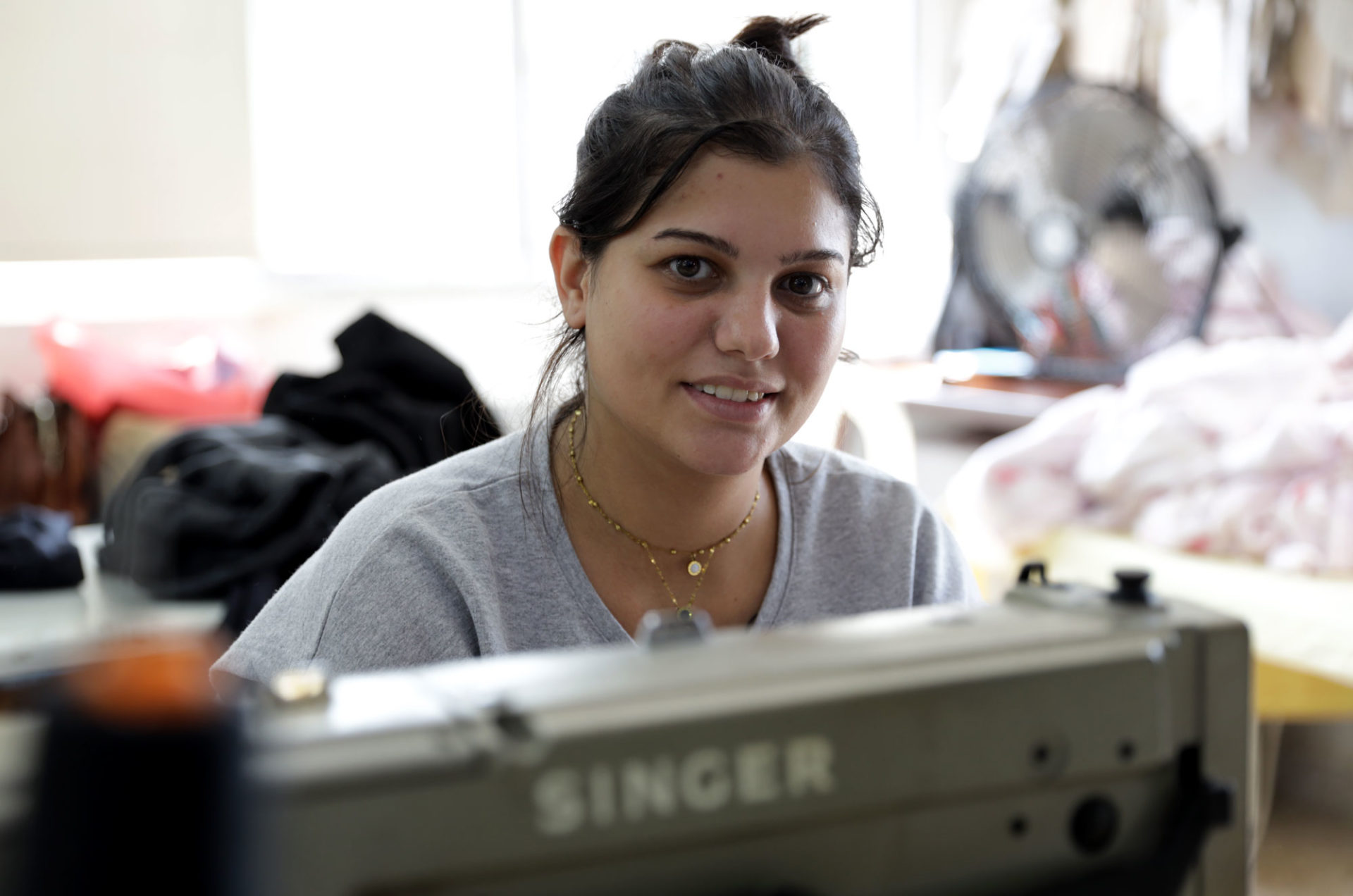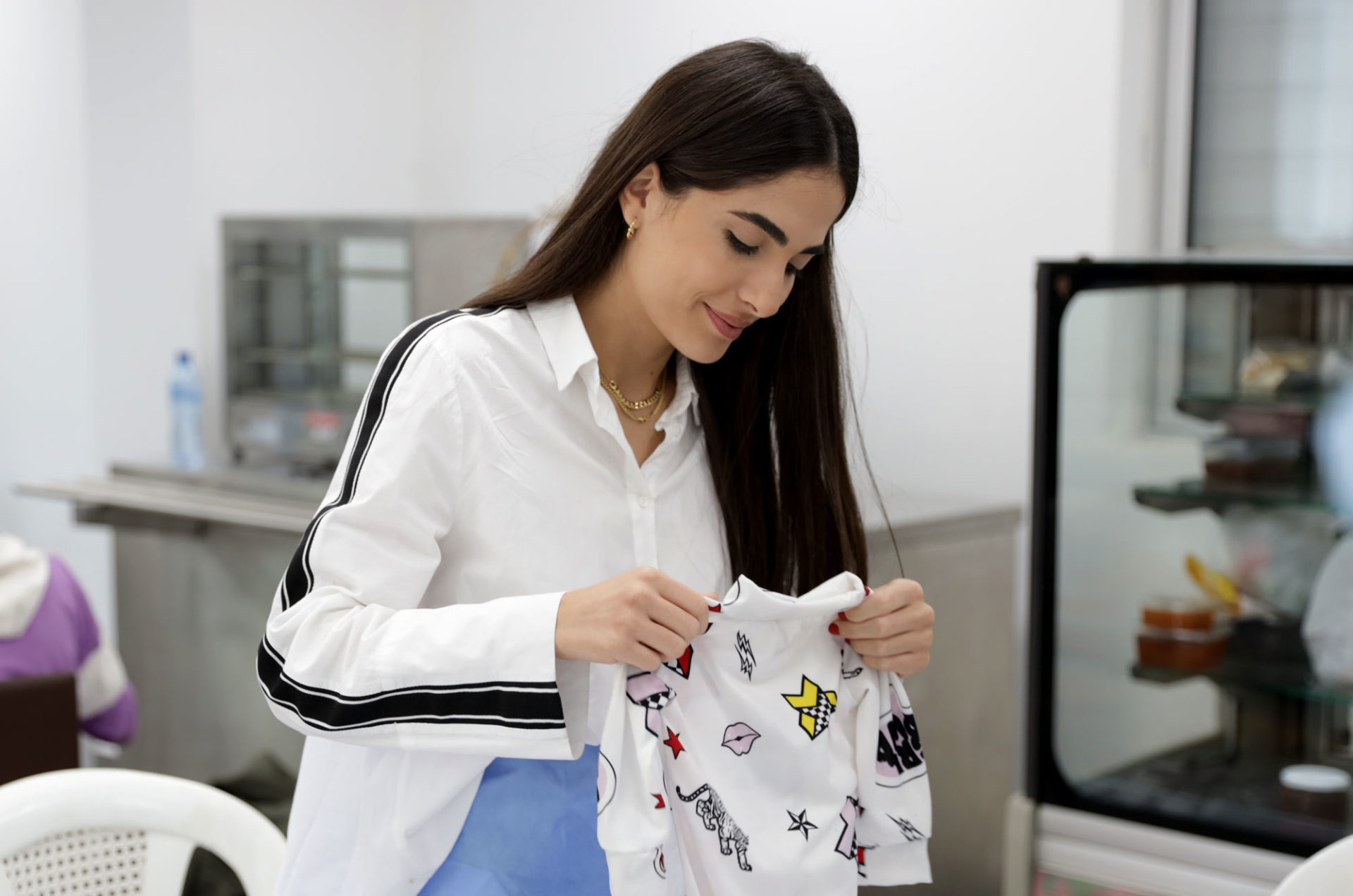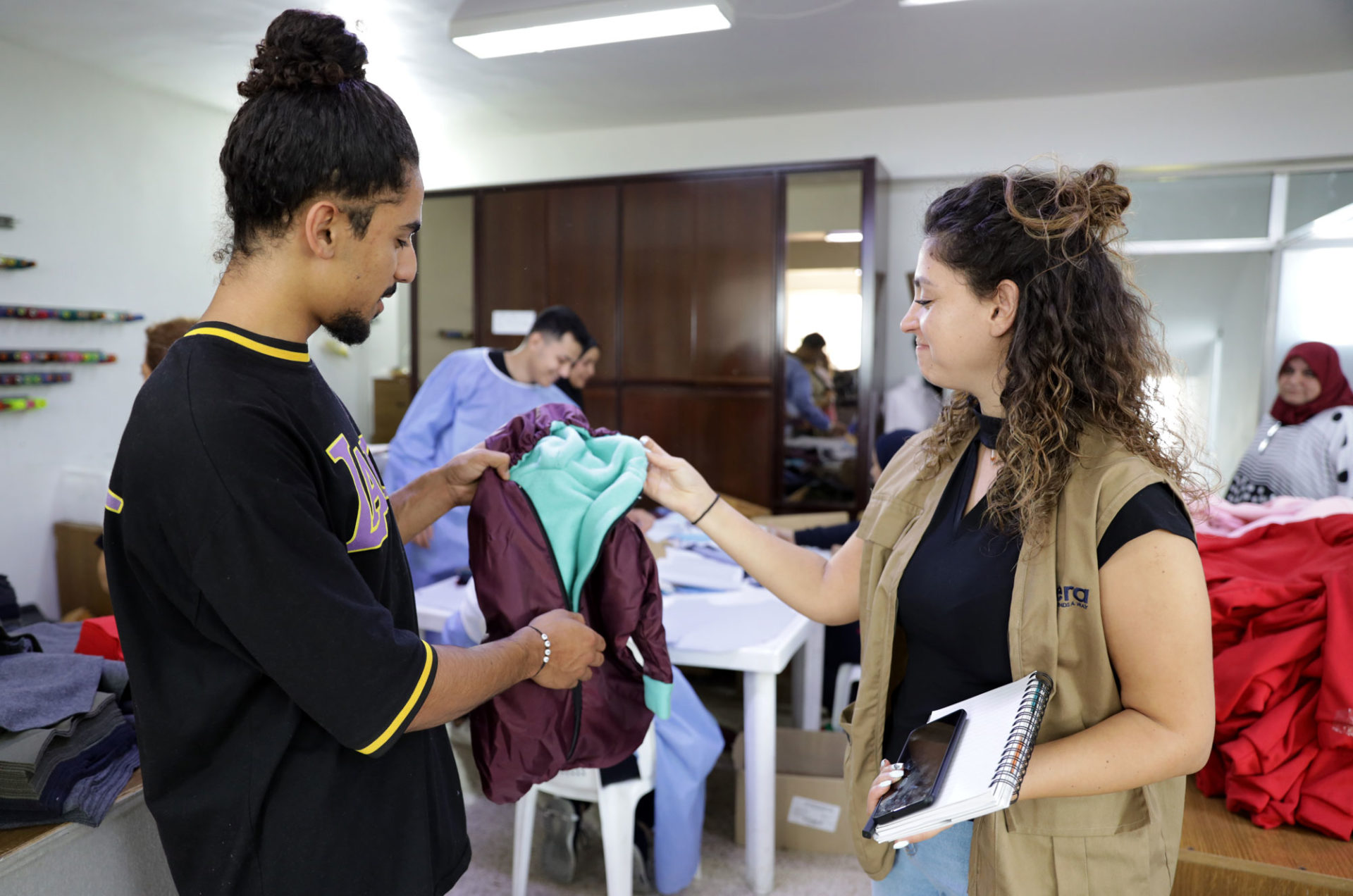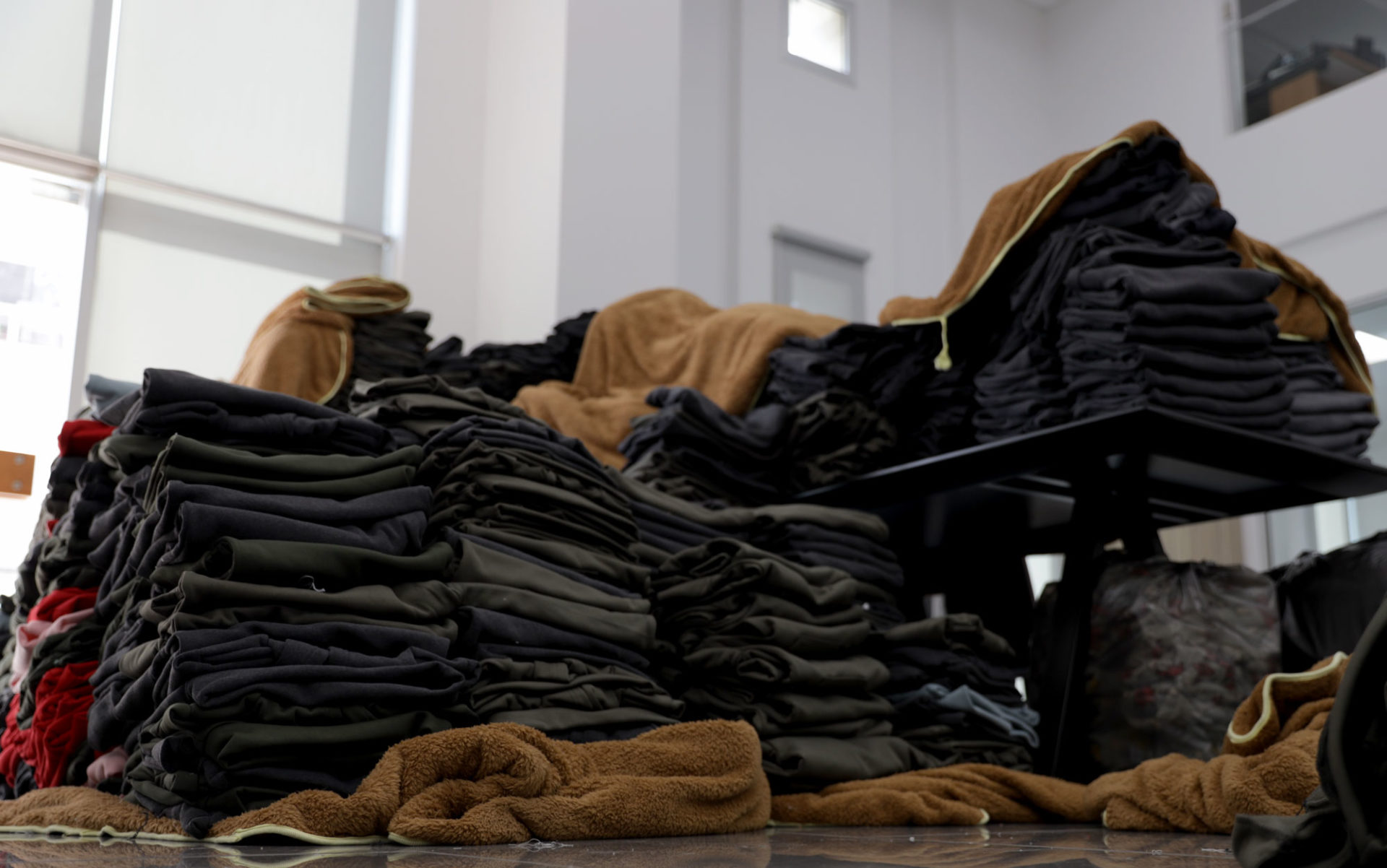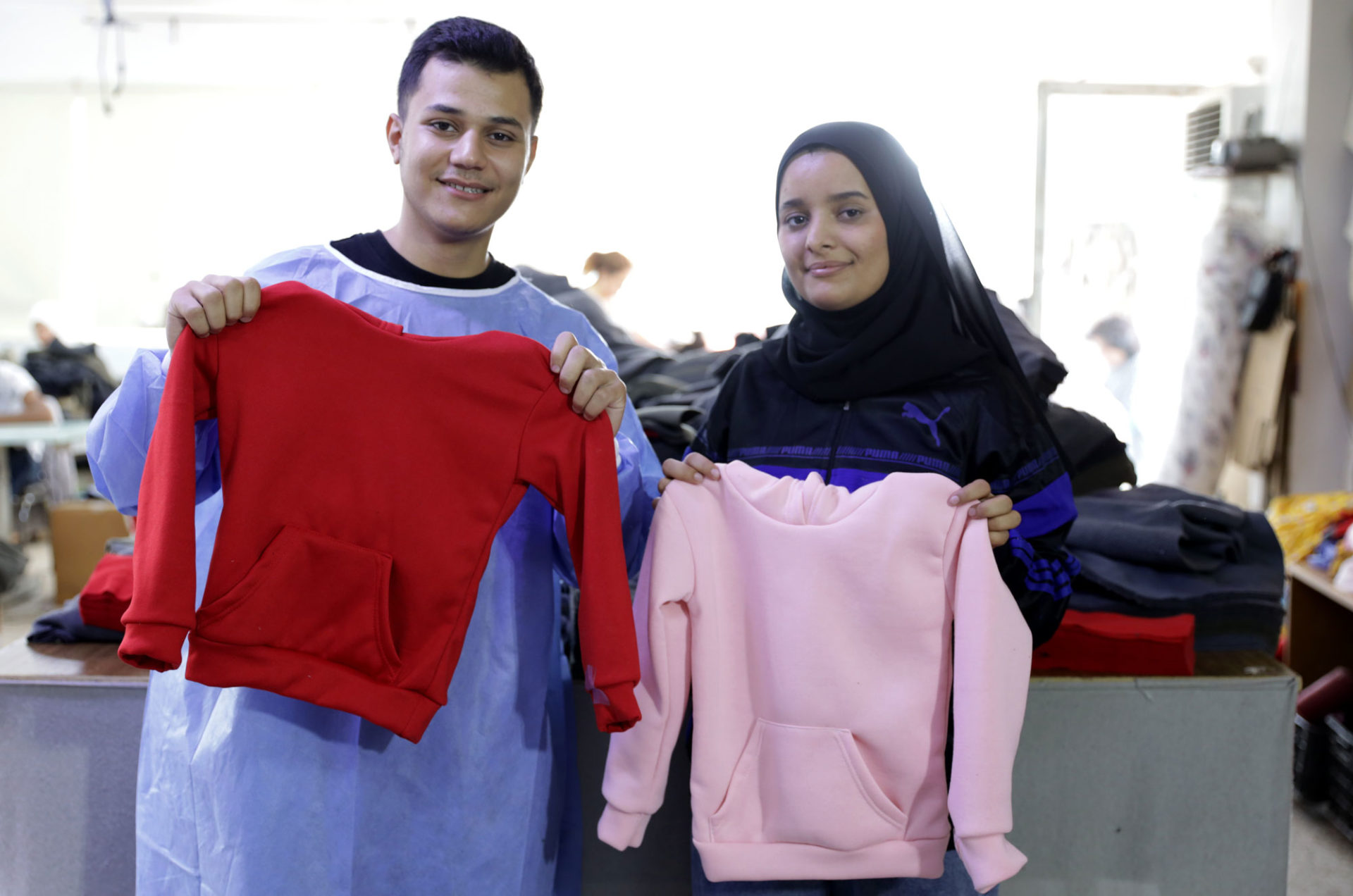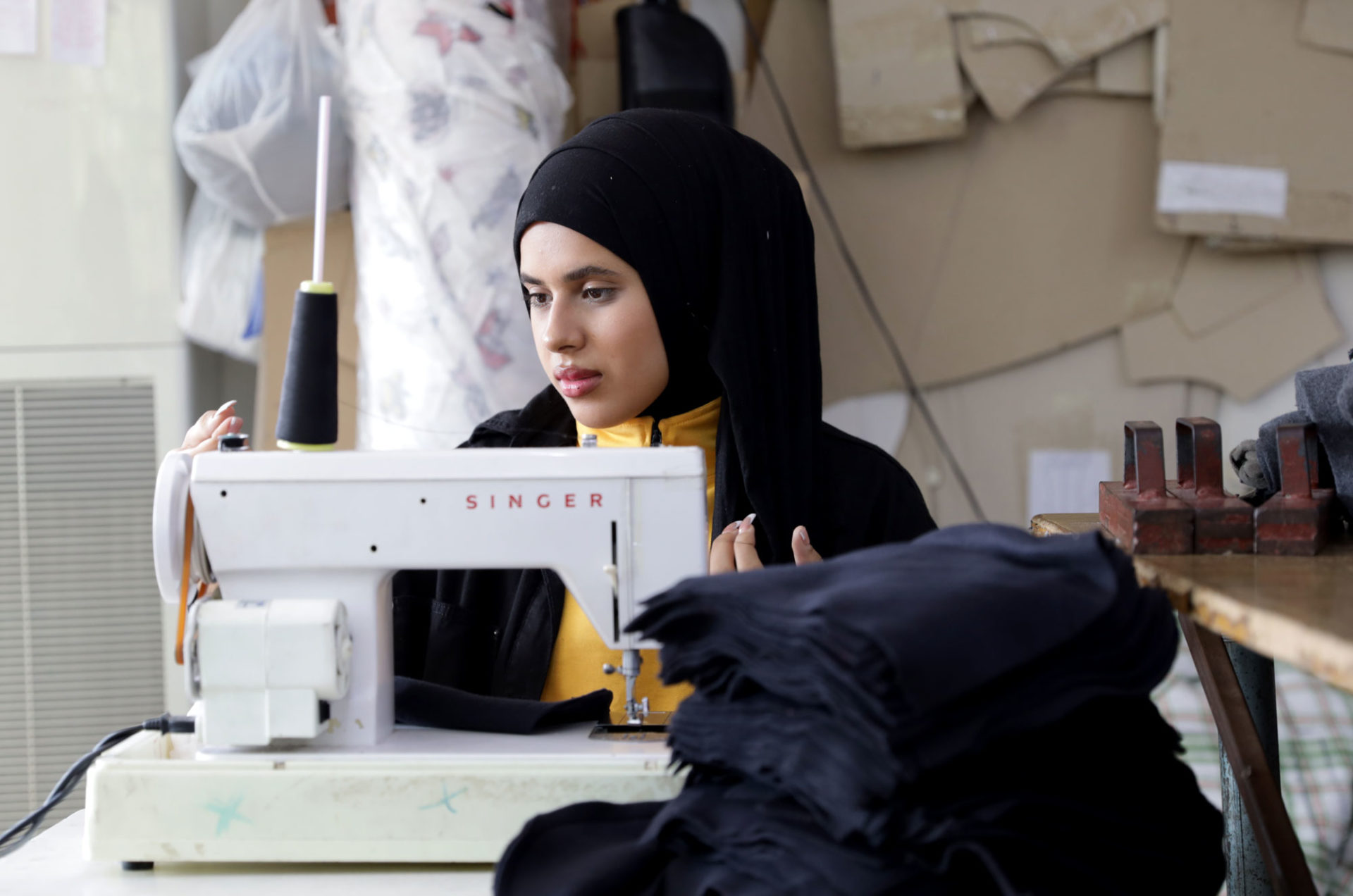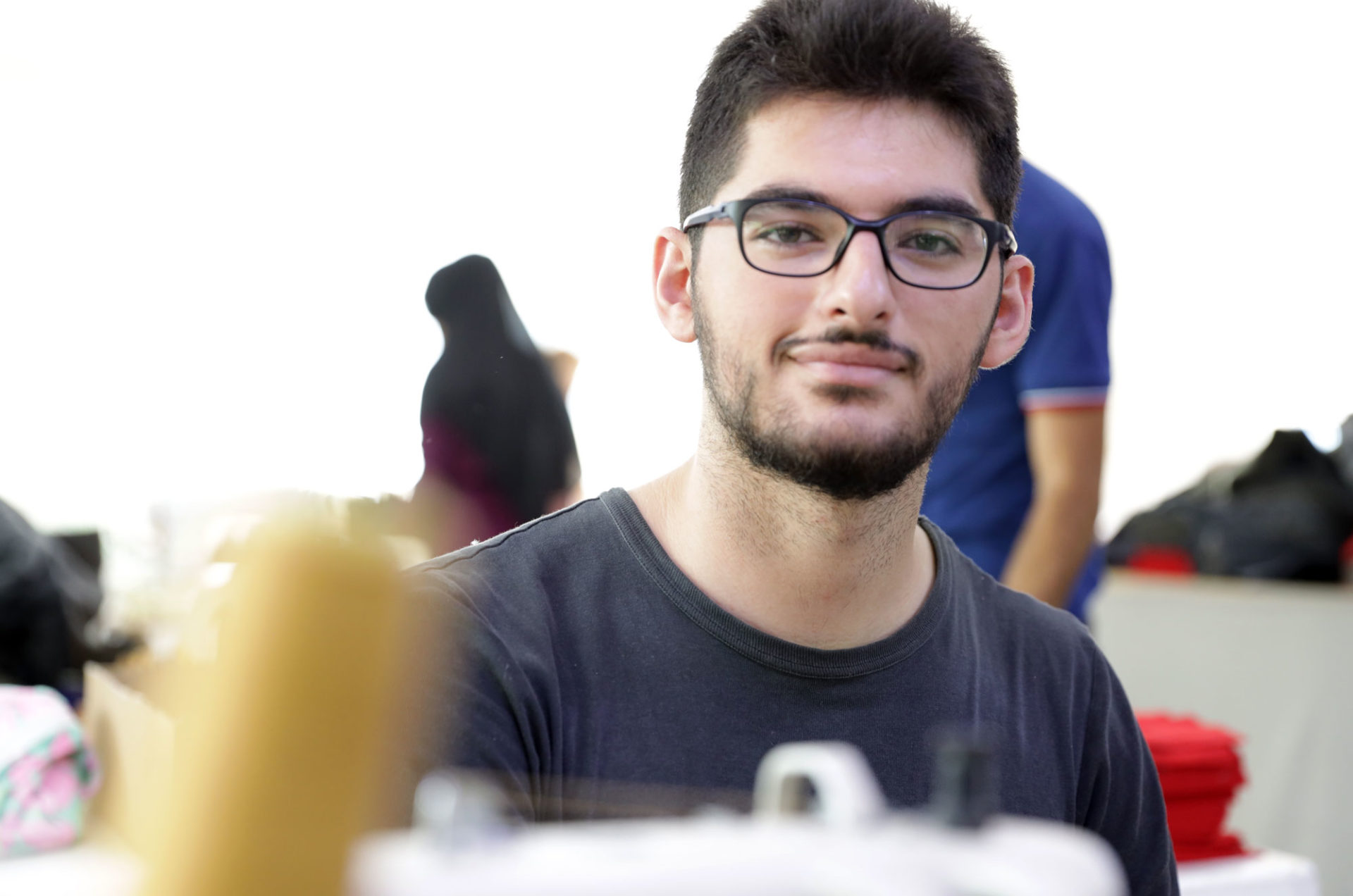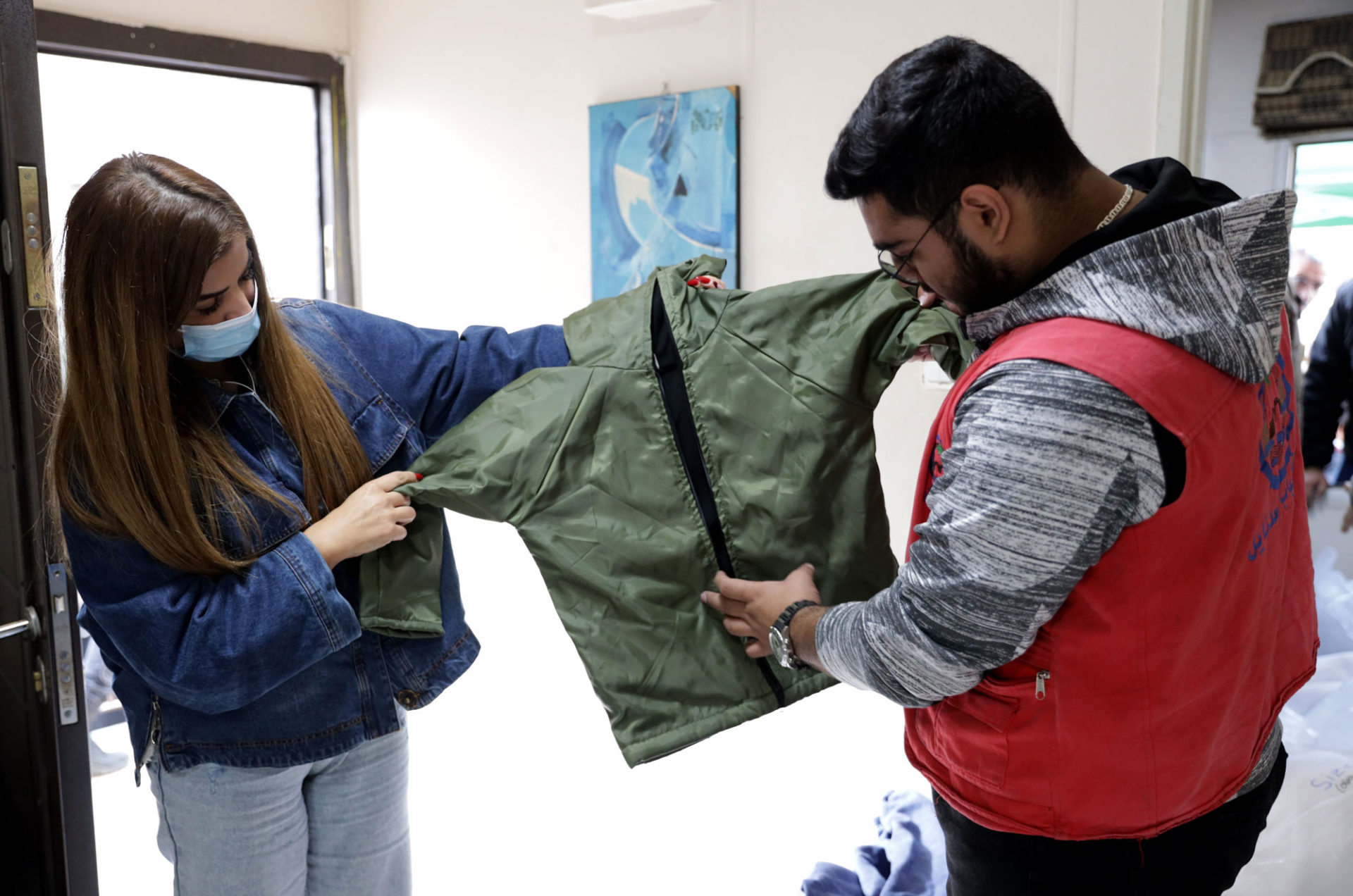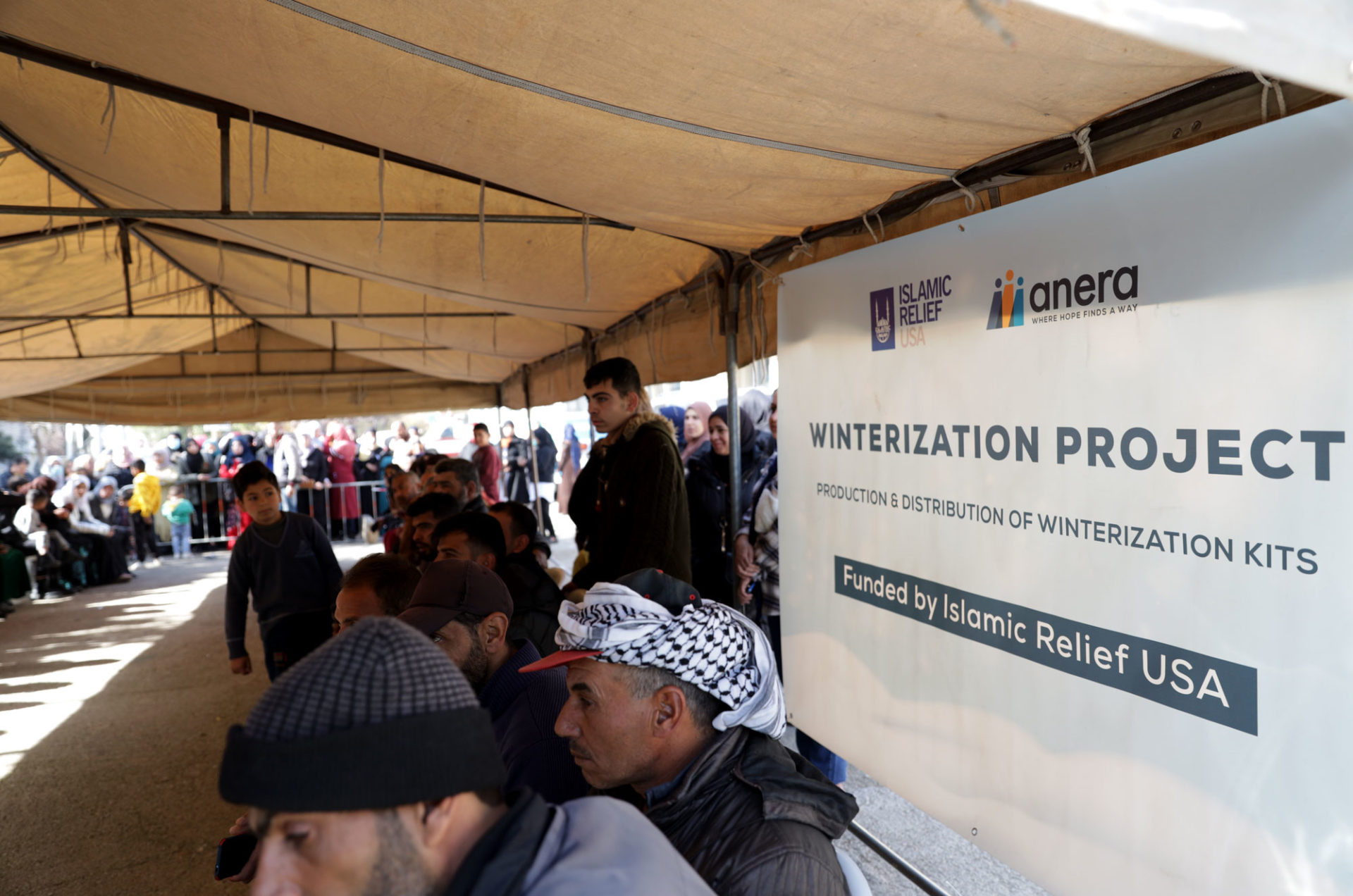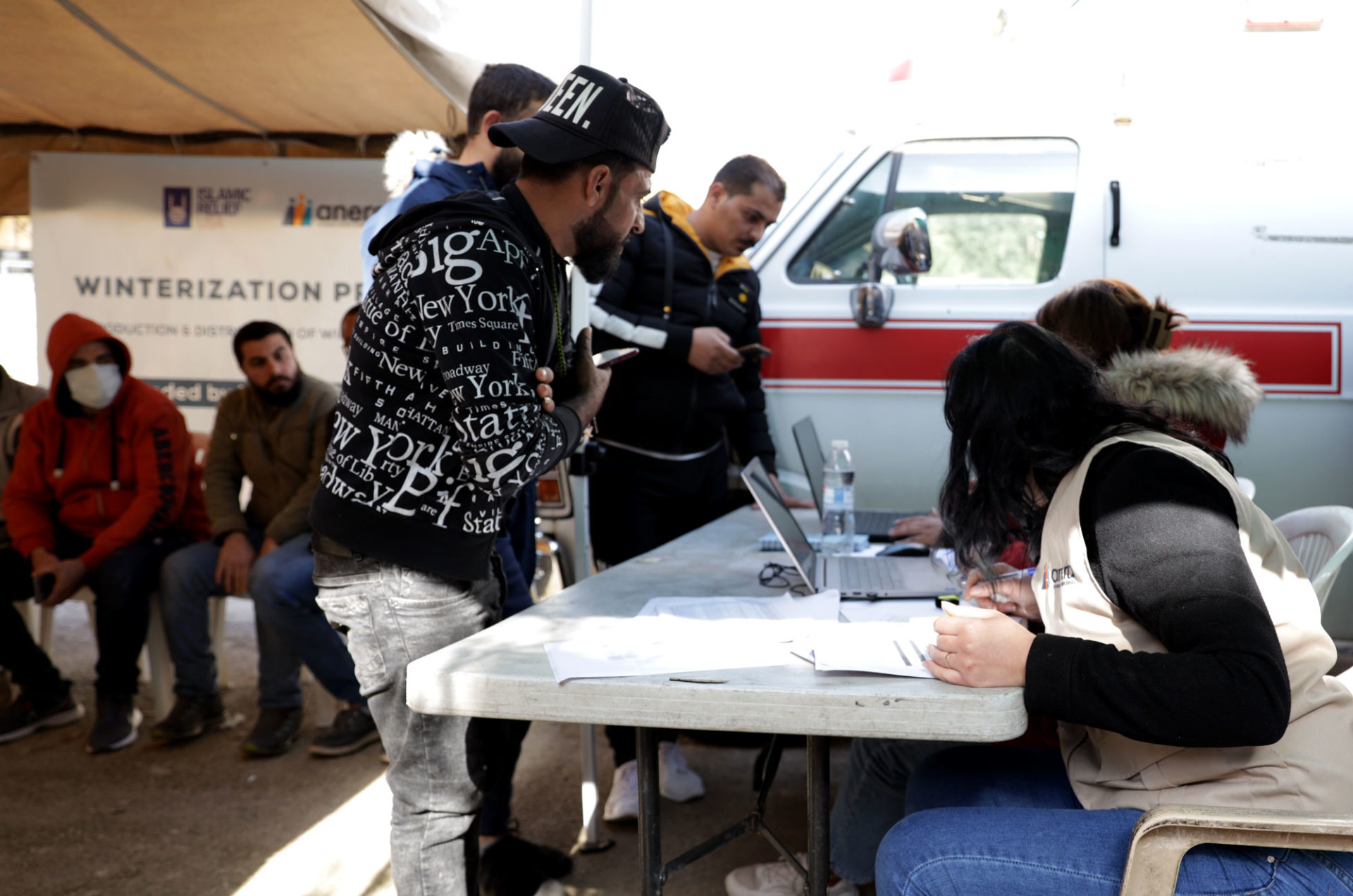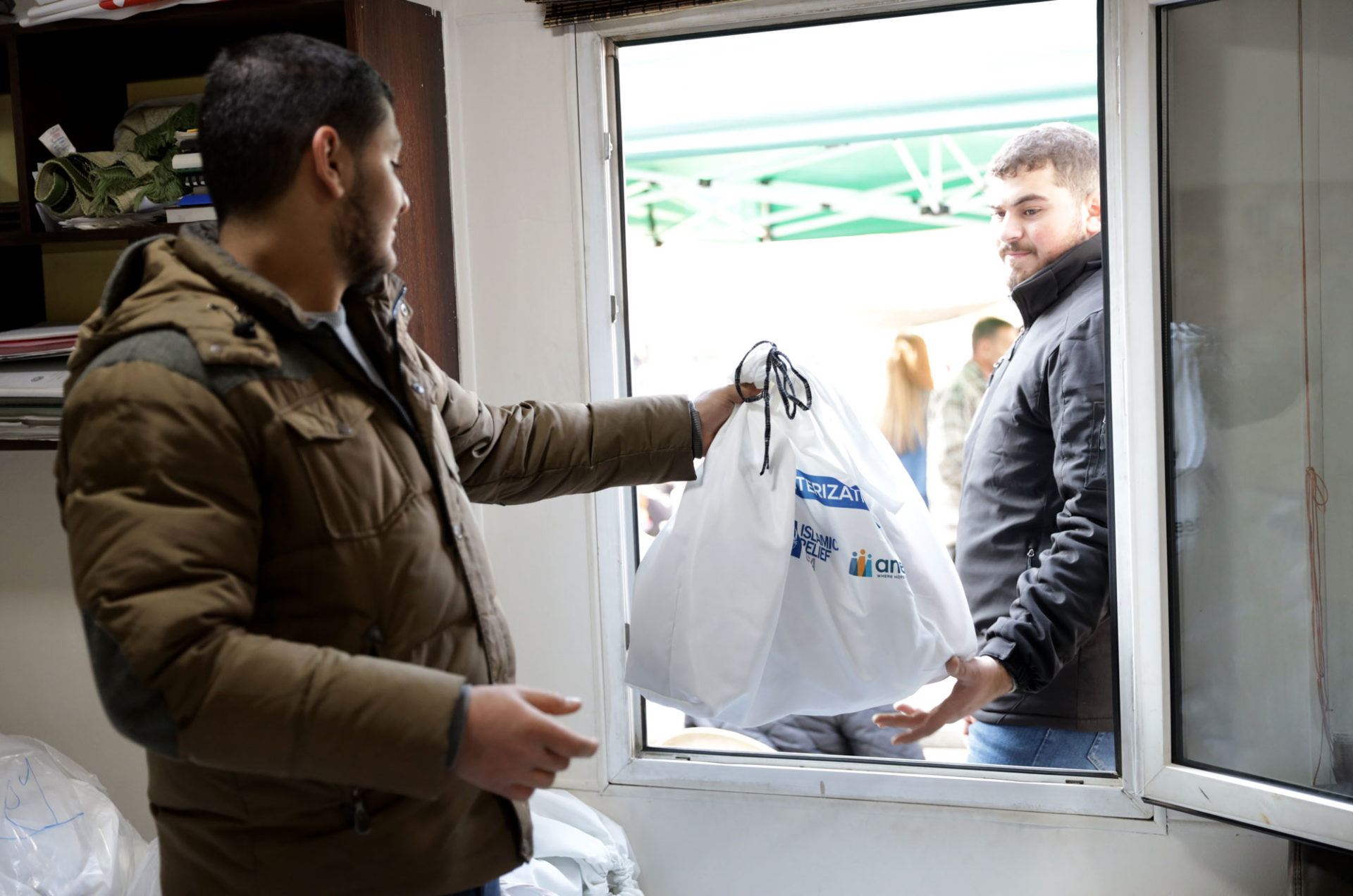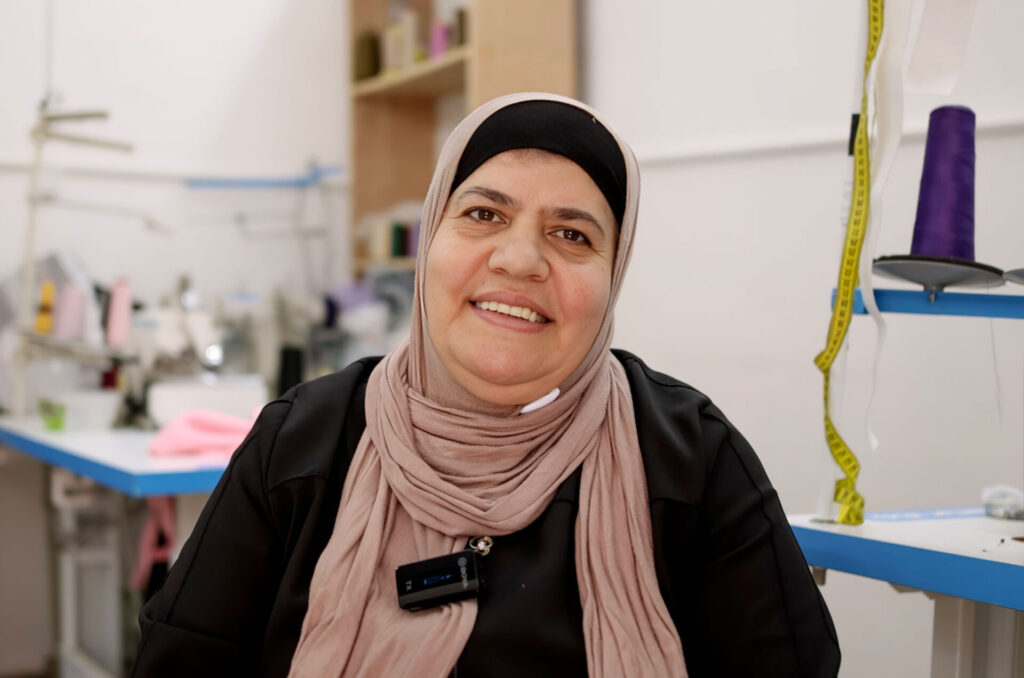Jan, 2023
Winterization drive is helping vulnerable families in Lebanon weather the winter cold
In the elevated and mountainous parts of Lebanon, the winter months often bring intense cold. For Syrian refugees prohibited from building permanent housing and, increasingly, for the growing ranks of vulnerable Lebanese citizens and Palestinian refugees as well, the cold season is dangerous and expensive. With the cost of heating fuel and clothing soaring, many families struggle to keep warm.
Anera’s winterization campaign, supported by Islamic Relief USA, has been in full swing in Lebanon in recent months. Implemented with our local partners Al Mouwasat Association in Saida and the Social Communication Center in Beirut, the project manufactures and distributes warm clothing to the most vulnerable families in preparation for the winter. The campaign hired 65 vocational sewing students to make winter garments for distribution to 7,400+ people.
The intersecting and mutually reinforcing program goals are what distinguishes this winterization project: the sewing course students learn a trade and earn money manufacturing winter clothes, while other vulnerable families in the coldest parts of the country get vital winter gear to stay warm.
We are distributing the winter garments to vulnerable Lebanese and Syrian and Palestinian refugees in Akkar and the Bekaa Valley.
Aya is the assistant general manager at a sewing factory in Saida that is participating in the project. She says,
“In addition to the knowledge and abilities [the sewing students] gained and the financial benefit they received, there was also an internal benefit, which was their sense of pride at having been a part of a project that helped many of their communities endure Lebanon's harsh winter.”
“Giving young people the chance to volunteer and assist others teaches them that any impact they can have, no matter how small, will eventually have a greater ripple effect.”
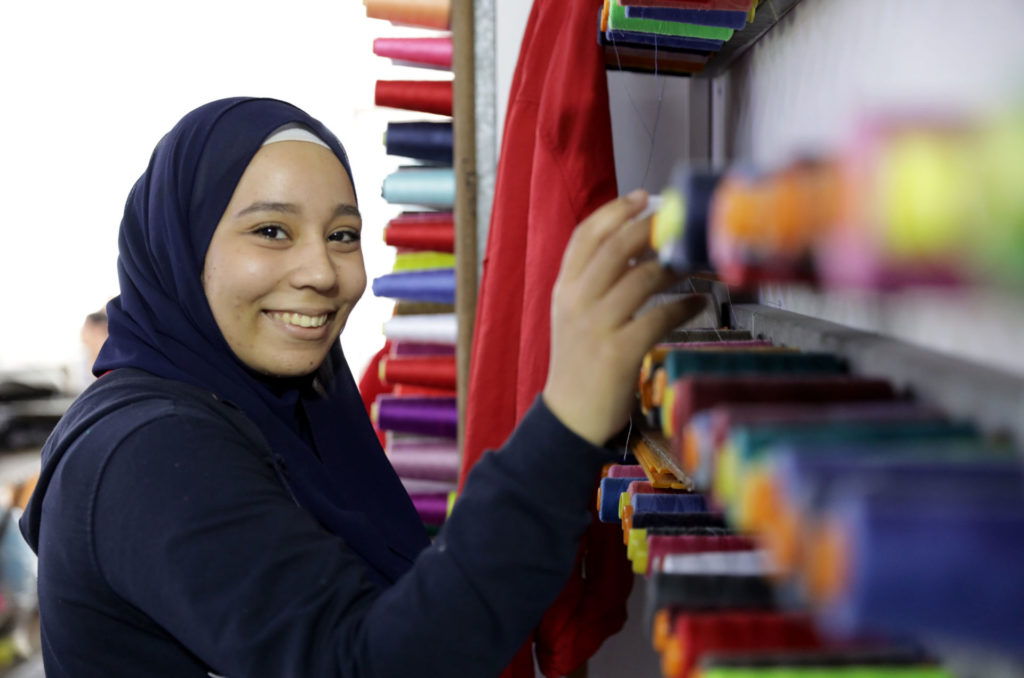

"There [is] an internal benefit, which [is] their sense of pride at having been a part of a project that helped many of their communities endure Lebanon's harsh winter.”
Baraa, a 20-year-old Lebanese sewing student, assisted in the production of winter clothing. He says,
“I dropped out of school a long time ago. It was difficult to find a job or a profession that would allow me to build a future for myself.”
“I began my sewing career with Anera during the corona pandemic, where we made masks that were given to camps and the less fortunate. After that, I took part in all of the courses offered to further my knowledge and abilities, as well as for the satisfaction of knowing that you may have put a smile on the faces of children by protecting them from the winter's chill with your designs.”
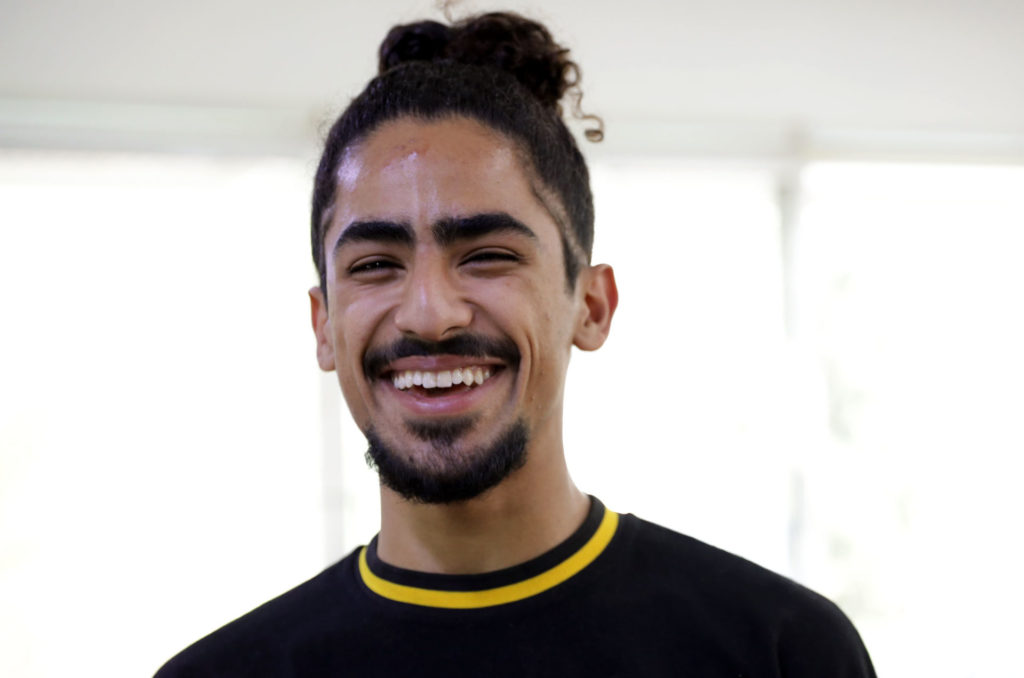
Sara, a 25-year-old Lebanese sewing student, also worked to make winter clothing. She says,
“I work nights as a hostess in a restaurant and sew during the day. It is extremely difficult to earn enough money, even if you work two or more jobs, because inflation is increasing every day and the exchange rate is falling. And the upcoming winter just adds to the financial burdens.”
“We were able to let [the families needing winter garments] know that they are not the only ones going through difficult times — there are people who support them and work to make a difference. This project gave me a sense of ability that I didn't have before, despite the fact that I don't have much.”
“We will never be able to stand on our own, so we must show solidarity and stand with everyone in need.”
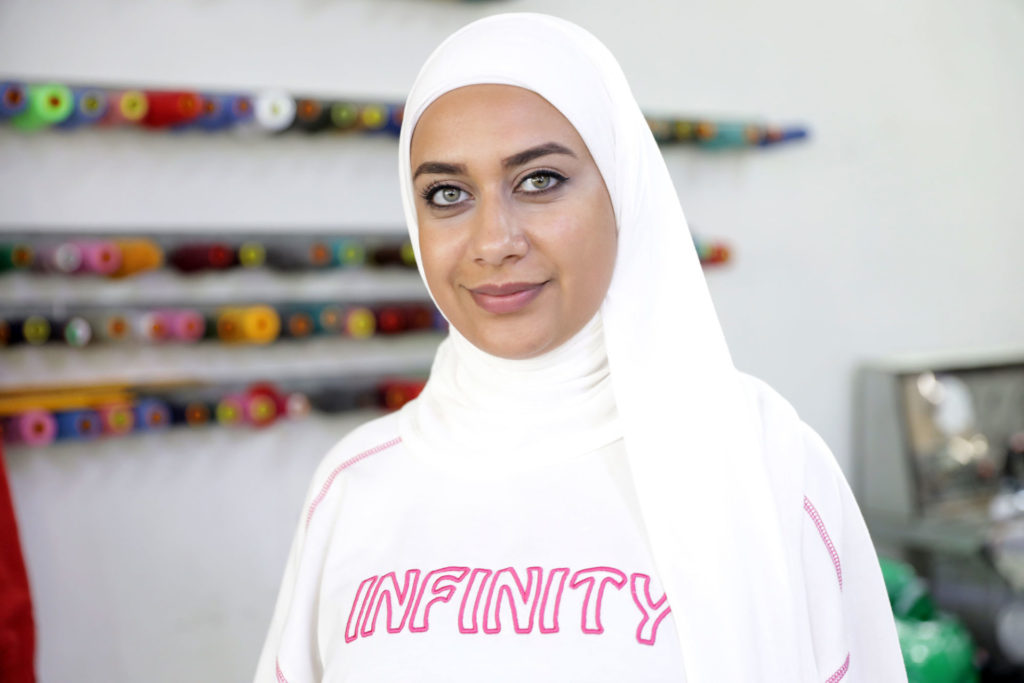

"This project gave me a sense of ability that I didn't have before, despite the fact that I don't have much.”
Malak, a 32-year-old Syrian refugee, is a single parent of two. She is picking up the finished winter clothes for her family today at our distribution site in Saadnayel, in the Bekaa Valley. She says,
“I've been in Lebanon for nearly 12 years. We fled to Lebanon at the start of the Syrian war, leaving everything behind. We struggled greatly to adapt in the beginning. Then just as we began to get adjusted, all of the events of the past three years came and upended everything we had built, leaving us in an even worse state than before.”
“I would not have been able to secure winter clothing for my kids without the kits that were distributed here.”
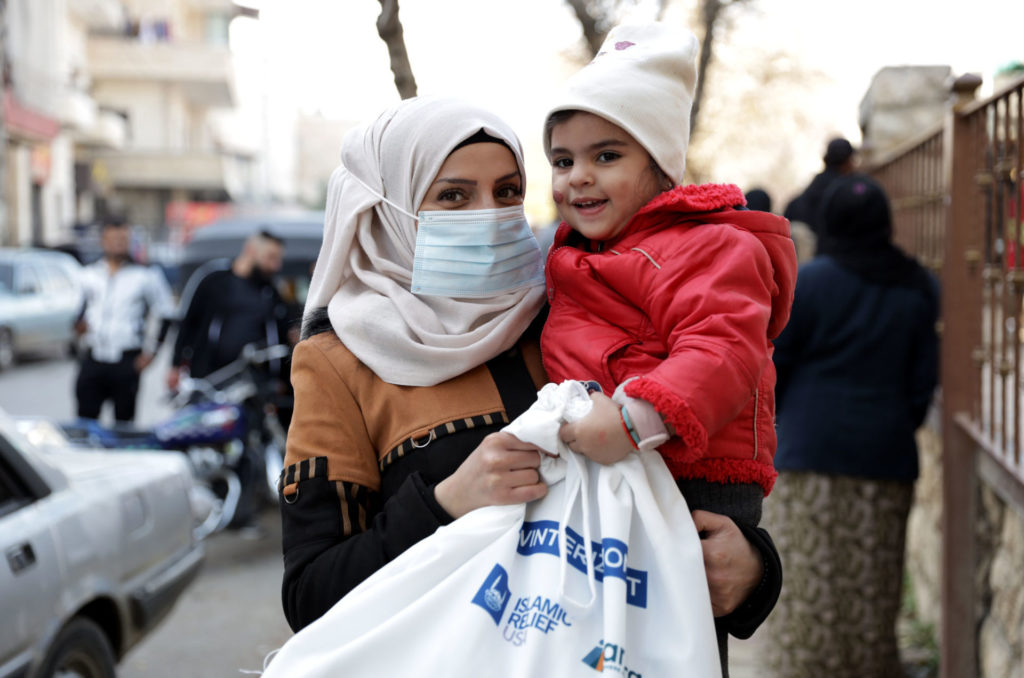

“I would not have been able to secure winter clothing for my kids without the kits that were distributed here.”
Tariq M., a 36-year-old Lebanese father of three, is also picking up winter wear today. He says,
“I'm a truck driver. My busiest time of year is during the summer when I deliver goods and produce from farms to the vegetable market. I also work in agriculture or anything else that provides me with extra money. The work usually slows down during the winter months, and I try to meet all of our winter needs during the summer.”
“Our situation has deteriorated significantly over the last three years, and we have lost a lot, and this winter looks to be the most difficult for us.”
Tariq H., a 33-year-old Palestinian refugee and father of two sons, also shares his story at the winterization pickup site.
“Being an independent contractor, my work is unstable, especially since the [economic] collapse. I am typically unemployed.
“Prior to the collapse, our situation was significantly better. Today, work is nonexistent, and the summertime work we do does not provide us with enough money to purchase even a small amount of diesel fuel.”
“I ask family and friends to lend me clothes for my kids that are no longer appropriate for their kids' ages, and then when my kids get older, I return the favor by giving them to other families.”
“I'm glad they'll be getting new clothes this time; they're not used to it. These clothes saved me a lot of money, and it also made me feel better knowing that my children would be warm this winter.”
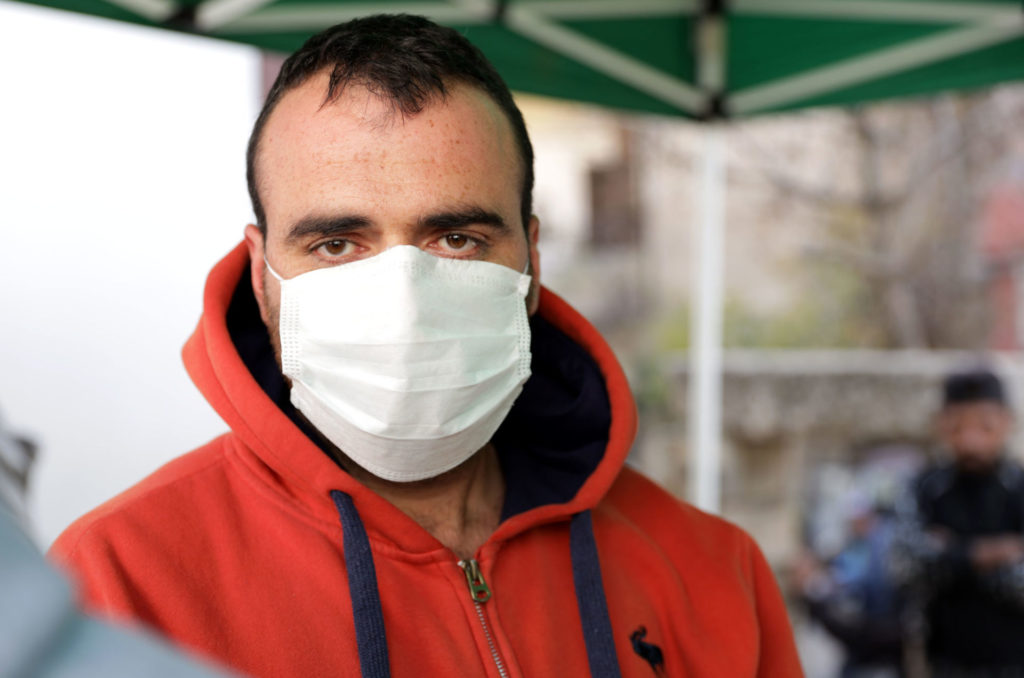

“I'm glad [my kids will] be getting new clothes this time; they're not used to it."
The views expressed herein are those of Anera and shall not, in any way whatsoever, be construed to reflect the official opinion of IRUSA, its Islamic Relief affiliates, or its donors.
